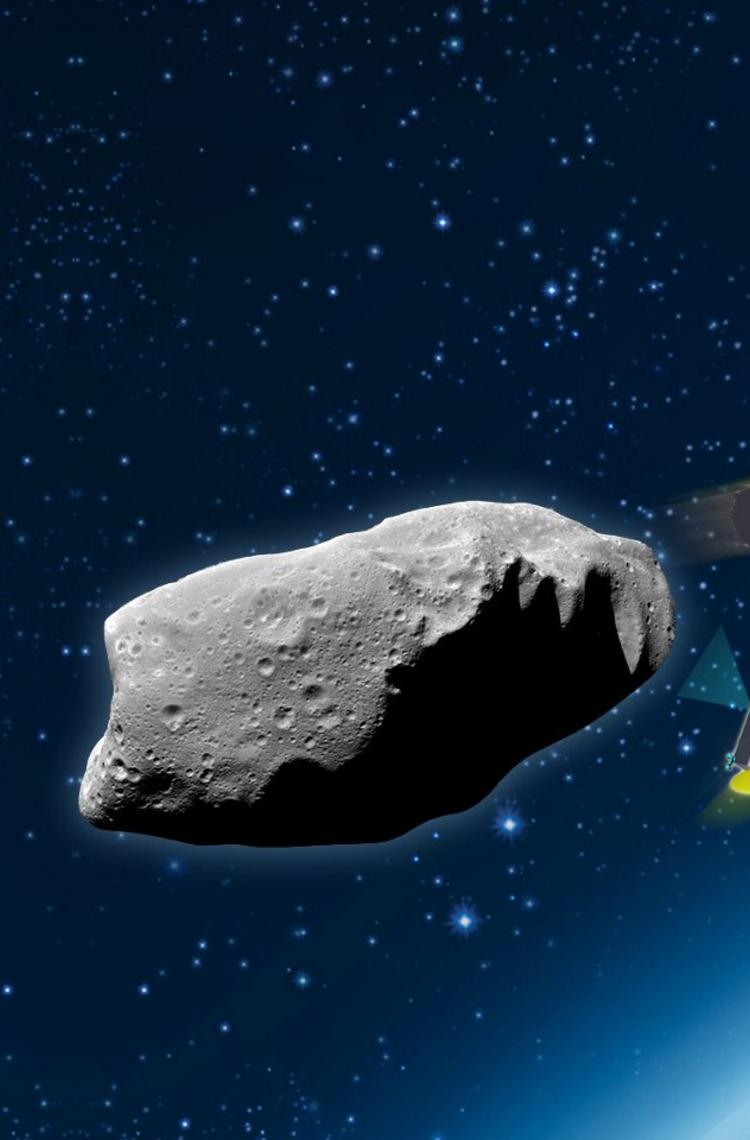It’s a scenario worthy of a Hollywood movie thriller: an approaching asteroid threatens the Earth, and an industry team is busily working on converting a telecommunications satellite into a kinetic interceptor to deflect this incoming menace.
At Airbus, fiction has become reality, as the company’s Defence and Space operation in Germany is developing the Fast Kinetic impactor Deflection mission concept (FastKD), which would provide a rapid space-based deflection capability in an asteroid-to-Earth impact warning time of less than three years.
Adapting a telecom satellite for the asteroid deflection
The tight schedule would be maintained by taking a commercially available telecommunications satellite and repurposing it for the kinetic deflection attempt. After minor modifications are made to the spacecraft’s platform and subsystems, an off-the-shelf kinetic impactor deflection module is added. With a ready-for-launch timing of six months, the preparation is significantly shorter than any other space science or exploration mission.
Kinematic impactors are among the simplest deflection techniques with the highest technology readiness levels – and can be easily achieved with European capabilities.
Deflection success is dependent on how the momentum is imparted by the impacting spacecraft, and how early the deflection impact event occurs before the approach to Earth. With a longer warning time, the spacecraft could undergo additional modifications and optimisation, and even be subjected to detailed testing/validation before launch to increase the deflection performance.
European technology and Airbus’ integrator expertise
The threat is real: on 15 February 2013, a previously undetected meteorite exploded in the atmosphere above Russia’s Ural Mountains, and the resulting shock wave caused extensive damage and injuries. Asteroids are larger than meteorites, and they have created at least 170 impact craters on the Earth.
Implementing a rapid-response, deep-space deflection mission is extremely challenging and complex. The need to act must come from a compelling political desire, while building on the successful heritage of European technology and in-house expertise. Airbus – as a large system integrator – is ideally positioned to respond to this challenge.
